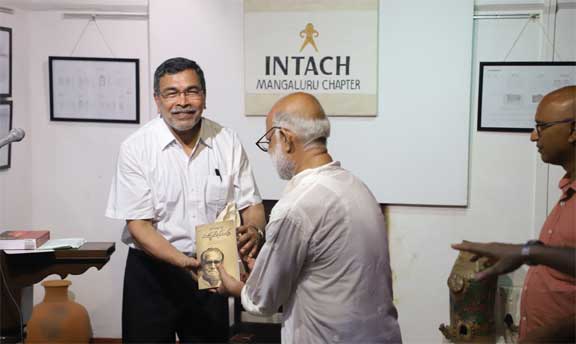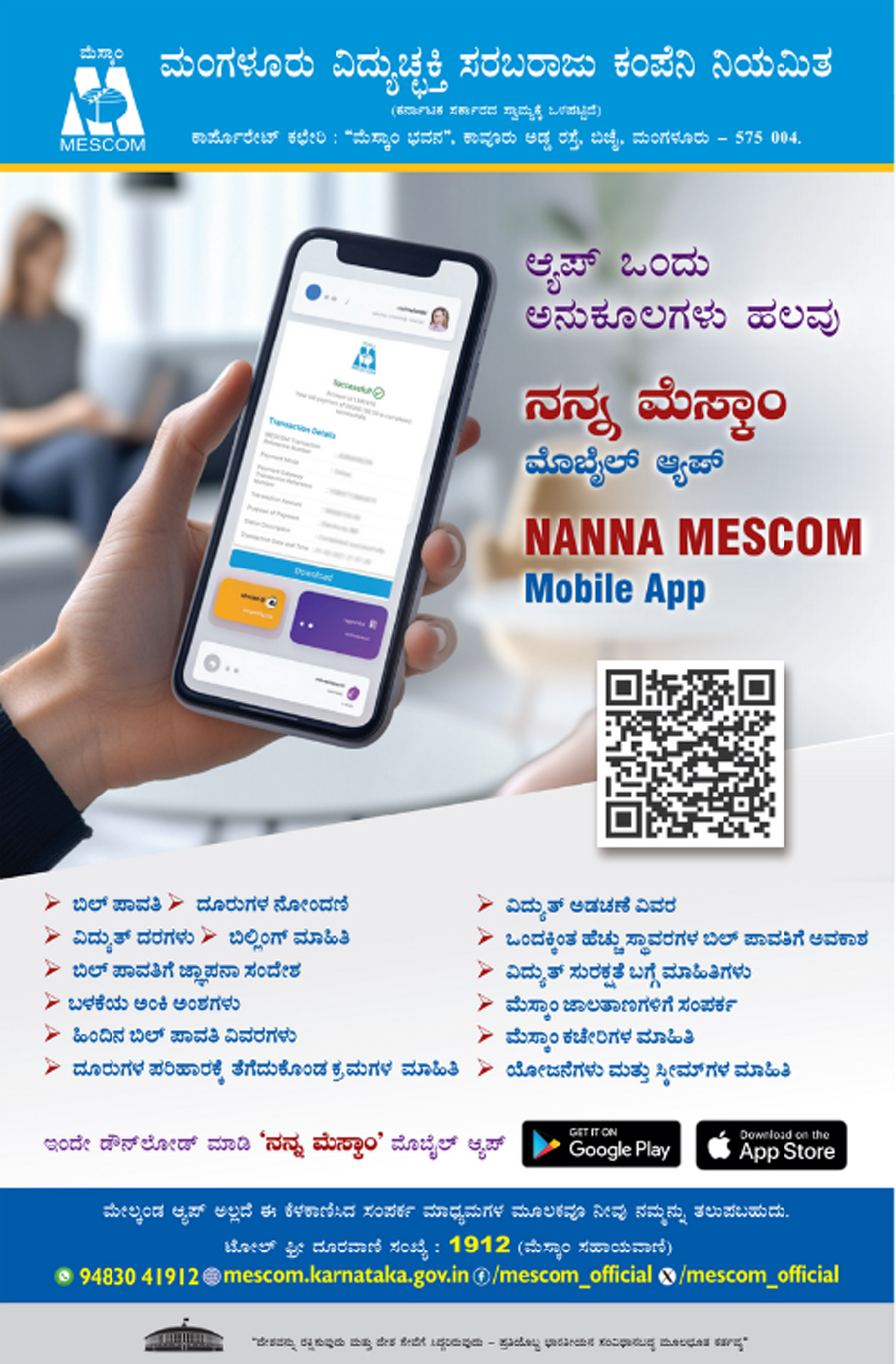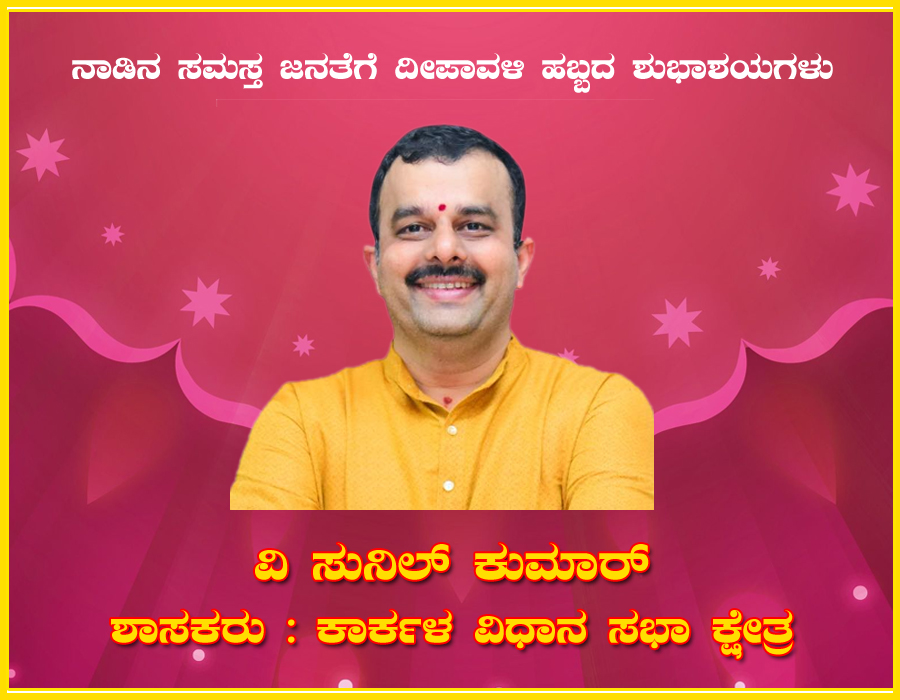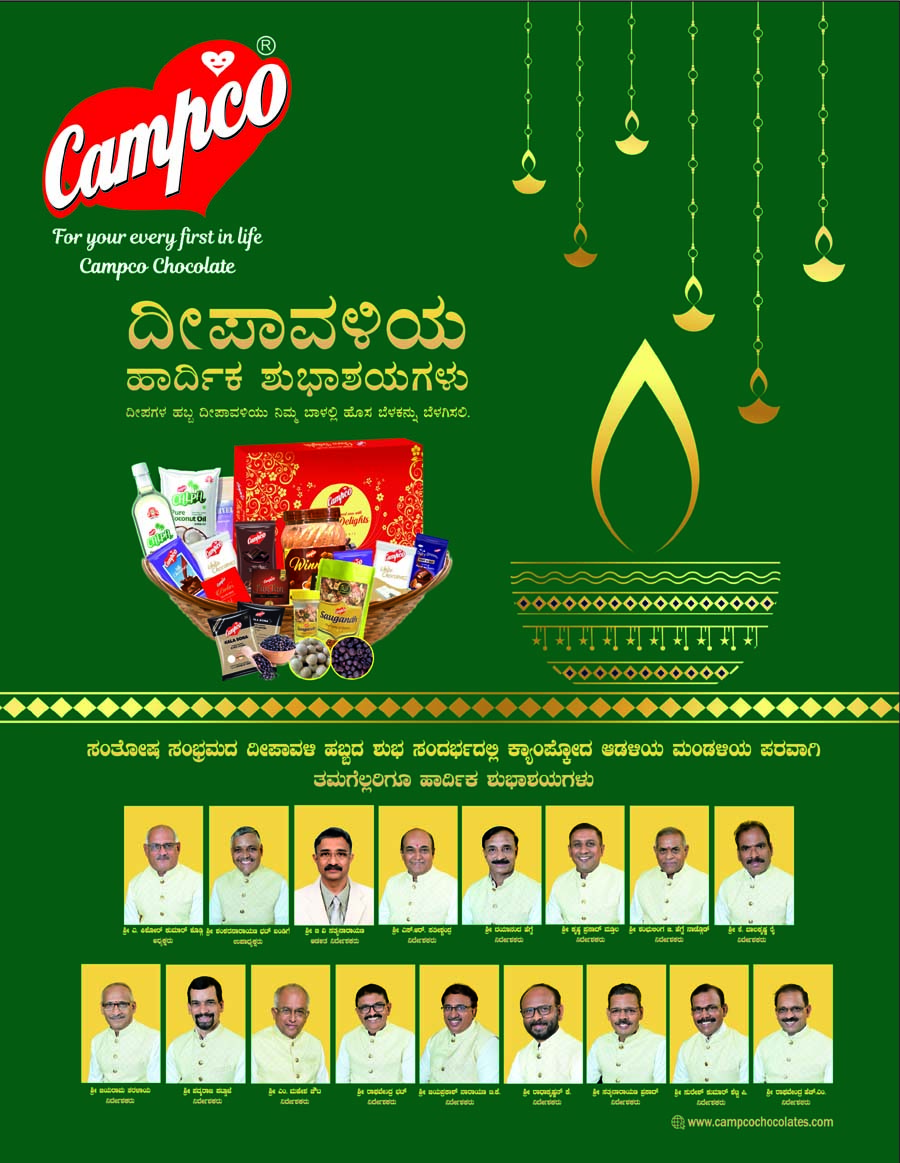“Folklore is precious and must be viewed with special attention,” – Dr. K. Chinnappa Gowda
11:28 PM, Thursday, November 21st, 2024 Mangaluru : “Folklore is an intangible yet vital part of culture, conveying the experiences and wisdom of common people. It is precious and must be regarded with special attention,” said Dr. K. Chinnappa Gowda, former Vice Chancellor of Karnataka Folklore University. Speaking on “The Role of Indigenous Knowledge in the Making of Oral Epics” today during a talk hosted by the Mangaluru Chapter of INTACH, at the Kodial Guthu Centre for Art and Culture as part of World Heritage Week celebrations, Dr. Gowda highlighted the significance of folklore in understanding culture.
Mangaluru : “Folklore is an intangible yet vital part of culture, conveying the experiences and wisdom of common people. It is precious and must be regarded with special attention,” said Dr. K. Chinnappa Gowda, former Vice Chancellor of Karnataka Folklore University. Speaking on “The Role of Indigenous Knowledge in the Making of Oral Epics” today during a talk hosted by the Mangaluru Chapter of INTACH, at the Kodial Guthu Centre for Art and Culture as part of World Heritage Week celebrations, Dr. Gowda highlighted the significance of folklore in understanding culture.
Dr. Gowda explained how folklore differs from traditional history, which often documents rulers and notable achievements. Folklore, he said, records the experiences of everyday people and is preserved through oral traditions, making it dynamic and adaptable to changing contexts. “It encompasses folk literature like proverbs and songs, material culture, customs, ceremonies, and performing arts. Many folk epics, such as the Tulu Siri Epic, revolve around themes of justice and rebellion, as in its portrayal of a woman resisting familial oppression,” he noted.
He recounted documenting the oral recitals of Macharu Gopala Naika, a celebrated performer of the Siri Epic, during a project led by Finnish folklorist Lauri Honko. The recordings spanned 25 hours over nine days, amounting to 15,683 lines. “Naika’s performances were unique and tailored to his audience, blending spontaneous improvisation and creativity. Such artists embody extensive local knowledge and artistic genius,” Dr. Gowda observed.
The event commenced with a welcome by Nemiraj Shetty. INTACH Mangaluru Convener Subhas Chandra Basu gave the vote of thanks. World Heritage Week programmes will continue until November 25. Highlights include a photo exhibition on Ullal Srinivas Mallya’s ancestral residence (November 21–24) and a showcase on Mangaluru’s Kattes (November 25–30) at the Kodial Guthu Centre, open daily from 11:00 a.m. to 7:00 p.m.
Simillar Posts
Warning: count(): Parameter must be an array or an object that implements Countable in /home/megamcaq/public_html/wp-content/plugins/post-plugin-library/common_functions.php on line 357
- None Found
Leave a Reply
© Copyright 2008 www.megamedianews.com All Rights Reserved. Privacy Policy








 Posted in
Posted in  Tags:
Tags: 






